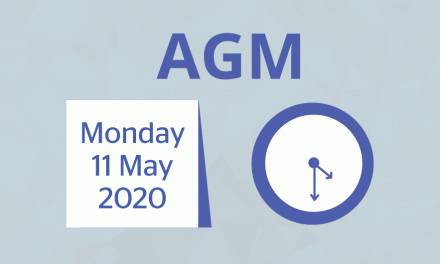Tune in with Andrew Fuller to consider COVID-19 issues for teachers and students
A message for students:
How to use time at home to surge ahead academically
The probability of changes to school routines to help slow the spread of the coronavirus (COVID-19) is a major challenge for senior school students. It is tempting to view this as an extended holiday with time for crashing out on the couch, watching squillions of episodes of Game of Thrones (again), spending endless hours messaging friends and consuming as many great snacks as you can get your hands on. Of course, while all of this, your parents are most likely going crazy but you have the perfect excuse—you didn’t ask for the school year to be disrupted.
Now I don’t wish to throw a dampener on your party plans but if you decide to veg out and do no work, you might regret it later. At the risk of being a major spoilsport, here are a few ideas to consider.
Develop and keep to a system
Goals are good but systems are better. Decide on your study program/system for the next few weeks and stick to it. Consider when you learn and think best, and don’t fritter those hours away.
If you don’t develop a system you are relying on waking up in the morning and saying to yourself, ‘Great, I can’t wait to get some study done today!’ I don’t know you but I wouldn’t like to place a bet on that happening very often.
Developing a system that works for you also sets you up for being a self-reliant learner after you have left school.
This is a chance to catch up, not to drop back
The first part of the year has been busy with ideas and papers flying in all directions. First, use this time to get some order into your life. Make sure your notes are coded and sorted into relevant folders.
Elaborate on what you already have
Once you have got your stuff together and everything is the right place, you can start to plan to surge. List all the topics that have already been covered this year. For each topic develop a concept map that links the main related ideas and outlines the relationships between them.
Developing a visual outline of a topic area deepens your understanding, improves your memory of it and improves your marks. That’s a win-win-win situation for you.
Why Venn Diagrams win hands down
Take the key concepts from each topic covered so far this year and draw at least two overlapping circles describing how the separate ideas are related. In the overlap area write some points about the similarities between the ideas. In the separate circles write some differences. For example:

Research shows that identifying how ideas are similar and also how they differ powerfully increases results.
Build your Learning Strengths
Analyse your Learning Strengths at www.mylearningstrengths.com and use the results to build on what you are already good at. Obtain a copy of the full Learning Strengths report to learn how to use your strengths to develop in other areas. By using your brain more effectively, you can achieve better outcomes.
Extend your thinking
Ask teachers to provide you with a list of upcoming topics. Read related texts and research future topics. Use Google Scholar to find relevant articles. If there are concepts that seem difficult to understand, search for videos or commentary by students explaining these ideas for the benefit of other students.
Email or phone your teachers. They will have resources that can help you.
Conversations deepen ideas
Universities usually conduct tutorials where ideas are discussed and considered with other students. Many schools will be offering online versions of these. Become involved in these discussions and be prepared to test your thoughts and ideas. Merely listening to other people’s discussions is never as powerful as being involved in those discussions. Remember, learning is not a spectator sport!
Test yourself
Plan to test yourself once a week on your level of knowledge. Develop questions on cards with answers or descriptions on the reverse side. Shuffle cards and answer the questions on them out loud. Place those that you answer clearly to the right of you and those that you don’t answer well or don’t know on your left side. Those that you can’t answer clearly require more learning. Over time, aim to get them all correct. This strategy works—self-testing has been shown to increase retention of information by 50 per cent.
Decide not to turn into a learning zombie
You’ve seen them—the learning zombies—sleep deprived, screen obsessed, brains clouded by sugars, fats and carbs; bouncing between energy drinks and exhaustion. Keep yourself learning-ready and life-ready by looking after yourself.
- Sleep is when your learning and memories are consolidated. It also boosts your immune system. Don’t miss out on this.
- Your brain uses at least 20% of your energy so give it good fuel to run on. Eat a healthy breakfast to get yourself ready for learning.
- Sip water regularly. Not only does it hydrate your brain and body, it also lowers stress.
- Even if you are housebound, practise a good physical exercise regime a few times a week.
Keep in touch
If you are isolated from your friends, it is easy to fantasise that they are having a wonderful time. Sometimes you can even start thinking they have forgotten about you. Even if you are not the most confident person, reach out to others. Invite them to have conversations with you. Share ideas or jokes.
This won’t last forever
The world has had viruses in the past and will have more in the future. We all need to be more careful to regularly wash our hands and to look after our hygiene and health. While I don’t want you to take unnecessary risks, the chances that you or someone in your family becomes seriously sick is very low. We’ll be back to more usual times soon.
Good sources to further your learning
- YouTube clips
- TED talks
- Podcasts
- iTunes U
- Khan Academy concept explanations.
Copyright Andrew Fuller, 2020
Stay in touch with Andrew
![]()
![]()
![]()
I would be delighted if this article creates a conversation. If you would like to make suggestions about this issue you could raise them by emailing Andrew at inyahead@satlink.com.au





